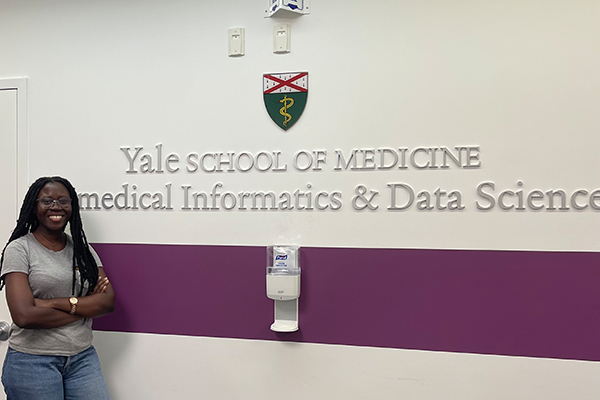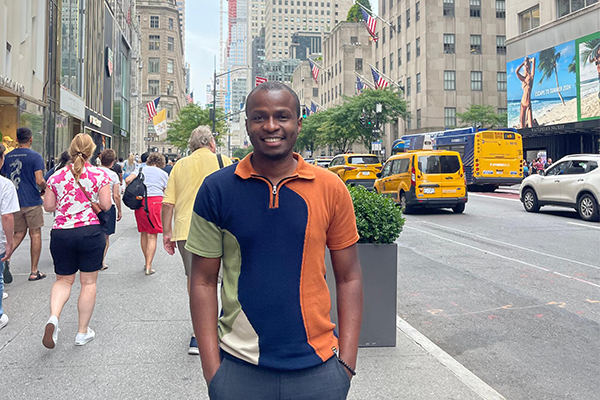AI and healthcare — up close
Giordana Verrengia
Sep 4, 2024
For engineering students looking to conduct research at the intersection of AI and healthcare, a quality opportunity is the École polytechnique fédérale de Lausanne (EPFL) summer program, created by the prestigious technical university in Switzerland.
This past summer, five Carnegie Mellon University Africa students dedicated their time to EPFL — and four of them traveled to the United States to participate in YaleEPFL, an extension of the program spearheaded by Mary Anne Hartley, an assistant professor of biomedical informatics at Yale School of Medicine.
Peter Ahumuza (MSIT '25), Wendy Essuman (MS ECE '25), Atabonfack Bernes (MS EAI '25), and Scovia Achan (MSIT '25) spent time at Yale, and Christine Muthee (MS EAI '25) was based in Switzerland for the summer. Their routine consisted of hands-on research projects, punctuated with a rigorous curriculum crafted by Hartley to teach "data science diplomacy," a natural companion to coursework in artificial intelligence, information technology, and electrical and computer engineering.
Ideally, a graduate-level internship gives students a chance to move beyond coding and into research settings where their soft skills come into play. Patricia Musiime, career services officer at CMU-Africa, emphasizes that professional communication goes hand in hand with technical prowess.
"We want our graduates to be the whole package," said Musiime. "You can be very skilled technically, but if you cannot communicate or lead well, no one is going to hire you."
Achan reflected on the advantage of collaborating with external organizations, like the International Commission of the Red Cross, while also developing pedagogical tools, including a learning software that Hartley intends to use to teach medical students about biases in healthcare. The course curriculum, "Biases in AI Usage and Testing," will also be taught at the University of Witwatersrand in South Africa.
According to Musiime, YaleEPFL is unique among AI-focused internships for its concentration in the healthcare sector, providing a chance for master’s students to see the intersection of AI and health care up close.
I’m interested in how AI can enhance healthcare by providing insights, diagnoses, and personalized treatments, especially in low-resource settings where the doctor-to-patient ratio is low.
Peter Ahumuza, MSIT ‘25
"Medicine and AI are finding significant intersections," said Achan. "I’m interested in how AI can enhance healthcare by providing insights, diagnoses, and personalized treatments, especially in low-resource settings where the doctor-to-patient ratio is low."
As part of the internship, students also reviewed podcasts, and research papers about applying AI in medicine. This gave interns a better working knowledge of an emerging topic with unexplored reach.
"Yale promotes research and collaboration," said Ahumuza. "My favorite part of the program has been learning from the diverse team I have been exposed to in the fields of machine learning, artificial intelligence, and software engineering."
He went on to say, "I would recommend this program to other Carnegie Mellon students because it provides a wholesome experience of working in industry and solving global problems."


